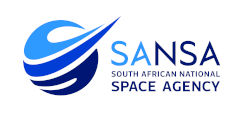
30 Oct Minister Naledi Pandor opens the 10th International Conference of AARSE
The 10th biennial conference of African Association of Remote Sensing and the Environment (AARSE) started on Monday, 27 October 2014, at the University of Johannesburg in South Africa. The theme of this year’s conference is Space technologies for societal benefits in Africa. The conference aims to contribute to the enhancement of the human and institutional capacity of African nations and citizens in the utilization of space technologies for sustainable development activities.

The conference was officially opened by the Minister of Department of Science and Technology, Honourable Naledi Pandor who emphasized that We must stimulate an African dialogue on the use of space for development, building African capacity in science and technology, and promoting continental coordination of space activities, she said.
The minister further emphasized the value of investing in space science and technology Take SPOT imagery for example. The acquisition of imagery from the SPOT series of satellites for South African users commenced in 2006 with the signing of the Spot Image Data Reception and Distribution Agreement. It has continued under the support of the SANSA with the signing of a new Spot Data Direct Receiving Station Supply, Reception and Distribution (DRS) Agreement between SANSA and Airbus Defence and Space Systems in November 2013. These agreements have enabled access to data from SPOT 1-7 satellites for a wide spectrum of South African users. Additionally, this coordination has enabled SANSA to negotiate the distribution of data from SPOT 1-7 satellites to users in SADC (both government and private sector entities) and a number of African countries outside SADC.
Coordination of space activities across the continent is vital for unlocking the promise that space holds for sustainable development and economic growth
The conference was also graced by the presence of SANSA Senior management, led by the CEO Dr Sandile Malinga. In his welcome address Dr Malinga said This conference comes at a time when the world is facing a number of challenges that can, should and are addressed through remote sensing Currently, about a third of the African population is in urban centres and, at an annual urbanisation rate of about 3%, the continent is expected to reach the 50% urban population mark by 2030. That is just over 15 years from now!
Urbanisation comes with huge challenges such as the clearing of forests and conversion of good agricultural land to residential land; the increased demands for energy and other amenities with the associated pollution produced.
By utilising remote sensing we need to find ways of developing smart cities where the location of residences, industries and farming land are informed by good geospatial intelligence.
We need smarter ways of planning our urban configurations. Ways that are informed by our current and African realities while learning from but not dictated to by old colonial planning architecture.
The conference is attended by a large number of scientists, practitioners, vendors of geospatial solutions and government officials from various countries across the globe with the objective of promoting the advancement of knowledge, research, development, education and training in space science and geospatial technology including photogrammetry, remote sensing and geospatial information sciences and their applications in sustainable development.
The week-long conference will feature technical plenary and parallel sessions consisting of oral and interactive paper presentations; pre- and post-conference workshops; scientific and commercial exhibitions of services and latest equipment; social events and tours; as well as the AARSE General Assembly.



